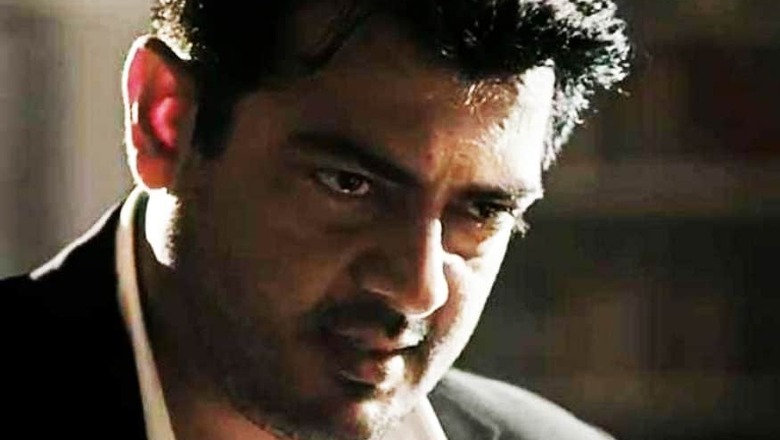
views
Bengaluru: A battle of Kannadiga pride versus freedom to dub films has erupted in the Kannada film industry, with pro-Kannada activists threatening to burn down theatres that screen any films that are dubbed into Kannada from other languages.
This was in the wake of the first attempt to release a big-ticket dubbed film in Kannada after — hold your breath — five decades.
The threat came on Friday, when Satyadev IPS, the dubbed version of the Ajith-starrer Tamil film Yennai Arindhal, was to release in 40 theatres in different parts of Karnataka.
Aggressive protests, activists tearing off posters, calling for a bandh — all this led to the film screening being called off in many theatres in places like Hubli, Belagavi and Gulbarga. The film was not slated for release in Bengaluru immediately — though producers said this is not because of fear factor. Only 15 theatres were able to screen Satyadev IPS — and these were less than 2% full.
In Bengaluru, Kannada groups led by Vatal Nagaraj held demonstrations in front of the Karnataka Film Chamber of Commerce and called for a bandh on March 11, when another attempt will be made to make Ajith better known to the Kannada viewer.
“This is a big rebellion, a big movement, whoever screens a dubbed movie… we will set fire to such theatres. We will stop all such anti-Karnataka activities,” Nagaraj declared, adding that if producers go ahead with dubbing films, Kannada organisations will stall the screening of all non-Kannada films until it is stopped.
“We are willing to go to jail for this cause,” he said. Kannada groups have asked actors, directors, producers and all artistes to support them on the ‘bandh’ that they have called next Friday.
So what’s the problem with a dubbed movie? Film industry workers argue that they will lose out on livelihood when big-ticket films are dubbed. They are fine with remakes. If the producer of Baahubali, for instance, decides to spend the same amount of money to remake the film in Kannada, the film chamber is happy.
But a dubbed film with merely ad-libbing Telugu or Hindi or Malayalam dialogues in Kannada is a strict no-no. And this unwritten ban is not today’s story. It has been on for more than 50 years — the last dubbed film that Karnataka saw was in 1962.
Attempts to dub the Hindi television series Satyamev Jayate, anchored by Aamir Khan, movies like The Jungle Book have all not been fruitful. In fact, while other states have dubbed Hollywood movies in Tamil and Telugu and the likes — many even boast of popular cartoons that are ad-libbed in their local lingo on a daily basis — Karnataka has been cold to the idea.
“No one is against films in other languages being screened here — but let it be in their language, let them not dub it. These protests are about livelihoods that are lost for these artistes, technicians. We cannot snatch away their food,” says Sa Ra Govindu, president of the Karnataka Film Chamber of Commerce.
The admission that the Kannada film industry is unable to compete with other industries comes quite candidly. “Kannada is a minimum market. We cannot spend so much, beyond a point we cannot compete with lavish films like Baahubali,” says Govindu. Without a ban on dubbing, it would be impossible for the industry to churn out an average 140 Kannada films a year, he argues, clearly indicating that this row is more about protectionism and economic concerns.
And, of course, just as they are questioned about fairness, and about how banning dubbing is against the law as set down by the Competition Commission of India a couple of years ago, the anti-dubbing lobby sets out with its ‘bhramasthra’ — invoking yesteryear matinee idol Rajkumar.
Actor Jaggesh, earlier a BJP MLC, shared pictures on social media of an age-old letter by Rajkumar saying he was against allowing dubbing in Kannada.
This attitude has been flayed by pro-dubbing campaigners. Vasant Shetty, a campaigner for language rights, who first started an online campaign to revive dubbed films three years back, says the Kannada lobby's agitations deprives the true Kannada viewer.
"Whoever wants to see original content, should have that choice, and whoever wants to see dubbed content, they should have their choice too... But like other typical protectionist schemes, the continued 'private' protection has resulted in isolating Kannadigas from receiving worldly knowledge in visual form and is fast turning counter-productive from the view point of increasing the language's reach," says Shetty.
New-age filmmakers like Pawan Kumar, known for his internationally-acclaimed Lucia, says the ban on dubbing itself is unconstitutional. After the Competition Commission of India allowed dubbing in Kannada, he had tried to get the rights to dub The Jungle Book, although he didn't succeed.
His views find support in actors from other southern films — Arvind Swami going ahead and asking if communities can "create their own laws" in contravention to the country's laws, and then try to enforce these with the threat of violence.
Friday's agitations, too, have set off an online debate in Karnataka, with people questioning why they are deprived on educational channels like History or NatGeo in the language they understand best. #AllowDubbing, many cried, emboldened by the backlash against the backlash.
Satyadev IPS distributor G Krishne Gowda says he is suing people who have been leading these the hartals in front of theatres as they seem to have scared away crowds and brought down collections.
"We are filing cases of defamation and damages against all such people like Jaggesh. This is just the beginning… We have lined up eight to 10 movies this year that are dubbed. We will release a movie every month, nobody can stop us," Gowda rages, after sending out legal notices to the groups that called him anti-Kannada.
A 'parallel' Film Chamber that he tried to start had just been vandalised, with protestors tearing down its board barely an hour before this.
"I am a Kannadiga but I don't understand other languages: not English, not Tamil. So many good movies like Baahubali are made, but we are being forced to watch it in other languages. Who are these people to tell me what I should watch? Entertainment is everyone's right," Gowda fumes.
Interestingly, he, like many others in the industry, believe that big producers and big theatre-owners are secretly with him in the allow-dubbing campaign. And that the fanatic campaign to 'save Kannada' could boomerang and destroy the language instead.



















Comments
0 comment